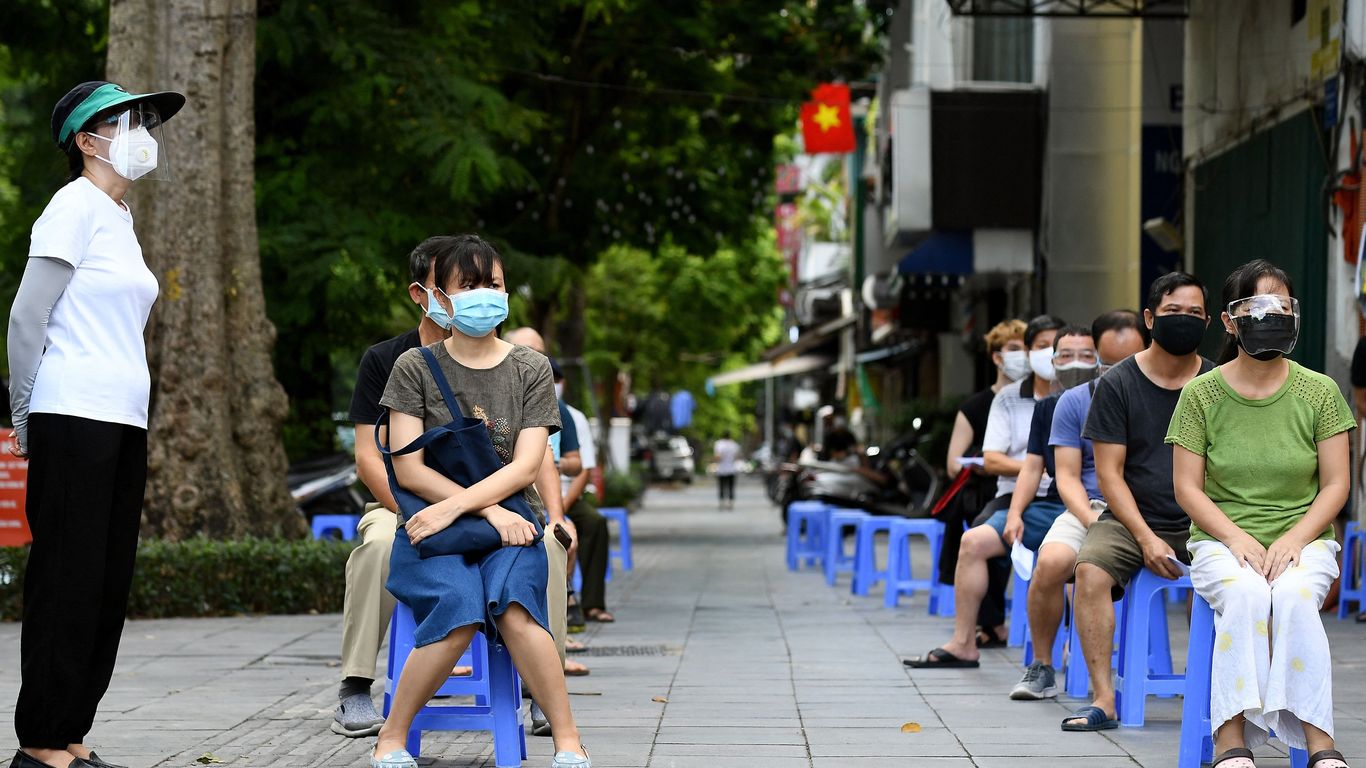…here the AusGov policy is that COVID-19 vaccinations are voluntary, any potential restrictions on those who choose not to be vaccinated potentially can run foul on Australians basic human right. which are a right to privacy, freedom of movement, equality and be free from discrimination
What is being proposed by the government (type of vaccine passports) and some business are actually taking those freedoms away. the basic premises of what the business/government is doing is actually coercion to get the vaccine shot for something that is not mandatory, but at the same time they want to deny and discriminate against those who for whatever reason choose not to be vaccinated
1. Thank you for sharing but I note your post lacks understanding on the dynamics of Covid-19 spread and the legal position adopted by you has no merit. You are not only mistaken in the use of facts to support your opinion, you are wrong in law.
2. If you study the origins of human rights law — the first case of it being enforced, was an extension of an idea in property law. The first case is telling on the legal reasoning process — go read it up — but even property rights are not absolute and the law of easements also apply. I find this fake sovereign citizen discussion about vaccines stupidly dangerous during a global public health crisis.
What is being proposed by… some business are actually taking those freedoms away…
If the government want people to have to go about its business without discrimination fear or favour then the government should make the COVID-19 vaccinations mandatory for all Australians unless medical advice provides otherwise, then the sanctity of our right to privacy, freedom of movement, equality and be free from discrimination will not be infringed
3. Don’t believe me? Go ahead a seek real legal advice and pay to sue businesses and the Australian government. In the link you provided, on 28 June 2021, the Australian Government announced that COVID-19 vaccinations would be made mandatory for residential aged care workers. All workers in aged care will be required to receive their first dose of the vaccine by Sep 2021. Some Australian states and territories have also issued public health orders mandating vaccination for certain industries or workers. For example, Queensland has a public health order in place mandating vaccination for health service employees who are likely to encounter and treat people with COVID-19.
4. With regard to the Knowns:
(a) One way to manage a Pandemic like Covid-19 is to curb it at local level, through public health measures that include vaccination. Especially in the context of a vast country like Australia. Masking and social distancing measures needs to be accompanied with some forms of enforcement.
(b) A Singapore study analysed 218 patients aged 18 and above who were infected with the Delta variant, which first originated in India, and were admitted across 5 hospitals or centres. Of them, 84 had received an mRNA vaccine in Singapore, of whom 71 were fully vaccinated. A total of 130 patients were unvaccinated, while the remaining four received a non-mRNA vaccine overseas. The study also found that initial Delta viral loads were similar for vaccinated and unvaccinated patients, in contrast to existing studies that showed lower viral load for vaccinated patients.
(c) Efficacy against serious disease is currently being reported as follows in Singapore, in terms of % of cases resulting in serious disease (requires oxygen)
- Vaccinated 1.3%
- Unvaccinated 9%
5. With regard to the Known Unknowns or what we know, we don't know:
Q1: When is the correct time to relax lockdowns (and quarantines) as public health measures to the pandemic?
Q2: What is role of asymptomatic (%?) and pre-symptomatic individuals in spreading the virus?
6. We need the case law to guide future generations. Therefore, I really wish that you would put you money on the table and go start a legal suit against Australian businesses who have to comply with
WHS laws in the jurisdictions they operate in. The policy space for WHS laws do not exist in a vacuum — insurance is the other part.
(a) IMO, allowing unvaxxed staff to continue to work in an office (instead of work from home) or even a restaurant, without adequate risk mitigation measures may be seen as a violation of WHS laws. This is untested in law, yet.
(b) The medical bills for the unvaccinated will be so high, medical insurance coverage will no longer be affordable for many small businesses — or coverage with exclusions — ie does not cover Covid-19 hospital admissions. The real cost of vaccination is less than A$100 versus a few hundred thousand for each ICU admission for life-saving treatment due to Covid-19 — it’s a no brainer to focus on prevention rather than on the cure after infection. Go study the basics in insurance law.
(c) Singapore just a had a serious Covid-19 outbreak affecting over 341 bus drivers (with a 95% to 98% vaccination rate). To more quickly pick up cases of infection, the 11,000 front-line staff in the bus sector (bus drivers and staff manning service counters in bus interchanges), will now have to undergo routine testing at least once a week, instead of every two weeks. This is a country with 100% masking on buses. The likely source of spread was from their open air, socially distanced, and well ventilated lunch/dinner areas — where they were unmasked.
(d) It is very likely based on documented case studies on the risk of spread of Delta, a realistic and workable testing regime of unvaxxed will need to be weekly, with 100% masking at work and loss of the ability to dine in on work place premises (unless solo seating in well ventilated and disinfected areas is made available).


